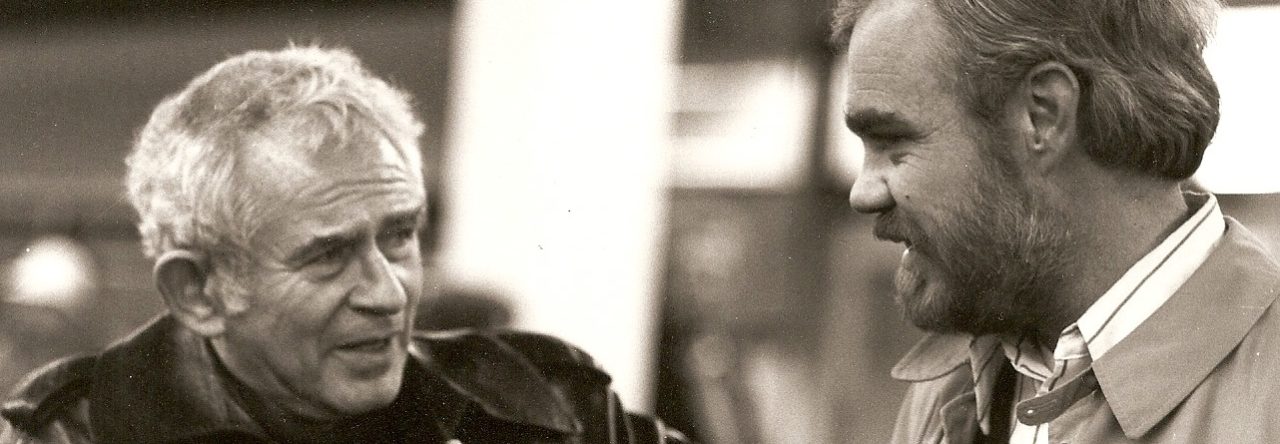A blurb on the back cover of professor-publisher-poet Philip Brady’s new book, Phantom Signs: The Muse in Universe City (Knoxville: University of Tennessee Press, 2019) describes it as a “high-spirited flash memoir.” This phrase could lead innocent readers to anticipate juicy tales of the author’s life as an American variety of Kingsley Amis’s Lucky Jim, a farouche academic who will take us on a frisky ride through the postmodern cultural landscape where we’ll encounter eccentric editors and nasty provosts (Brady’s particular bogeymen), attend poetry readings, ponder manuscripts and blurbs, get tutored in small press publication, pedagogical conundrums, and literary politics, all of this reamed with apercus about the miseries of social media and technology, remembrances of youthful erotic escapades, and punctuated by mildly astringent appraisals of poets past and present—Homer, Yeats, and H. L. Hix are the book’s tutelary spirits—as well as comical portraits of fellow litterateurs and beloved family members, the whole shebang battened together by droll wit and admirable forbearance. Brady’s dazzling new memoir (he wrote an earlier, more conventional one, To Prove My Blood, 2004), is all of these things, but it is the dream-like manner that he employs for the majority of the volume’s essays that transforms the volume into something rich and strange.
Tag: review Page 1 of 8
NORMAN MAILER WOULD HAVE been ill suited for the contemporary cultural landscape. Married six times, he discarded five wives and stabbed one (an incident that led to a 17-day confinement in the psych ward at Bellevue, a conviction for third-degree assault, and five years’ probation). Overconfident, often boorish, fueled by booze and driven by a towering ego, he made a drunken ass of himself on The Dick Cavett Show in 1971 and got the stuffing knocked out of him in a debate with a panel of prominent feminists — a raucous, ragged, must-see affair captured on film in the D. A. Pennebaker/Chris Hegedus documentary Town Bloody Hall.
David Denby writes:
In recent years, Mailer has been grievously out of fashion, but in February the Library of America is bringing out a two-volume set of his work from the Sixties, one volume devoted to fiction, the other to essays and journalism, and Mailer may be due for reappraisal and revival.
Read the rest of his review of the Library of America’s new Mailer collections at Harper’s.
What clearly distinguishes Ali: A Life from the score of biographies preceding it – including even the best of them: Thomas Hauser’s Muhammad Ali: His life and Times (1992), David Remnick’s King of the World and the Rise of an American Hero (1998), and Gerald Early’s Muhammad Ali Reader (2013) – is the analysis of the number and kind of punches Ali gave and received, round by round, over the long arc of his career.
To lead off, a few facts: the three journalists Todd worked with are Bob Woodward, Carl Bernstein and Ben Bradlee, the trio responsible for bringing down Richard Nixon by revealing his complicity in the Watergate break-in cover up. The first lady was Hillary Clinton.
As an editor-in-chief at two American publishing houses, Simon and Schuster and Alfred A. Knopf, from the mid-1960s through the late 80s, and as the Editor of the New Yorker from 1982–97, Robert Gottlieb has coddled and hectored more important American writers (and some British) than anyone since Maxwell Perkins dealt with the distinctions and deficiencies in the prose and egos of F. Scott Fitzgerald, Ernest Hemingway, James Jones, Marjorie Kinnan Rawlings and Thomas Wolfe.
Young in Springfield, Lincoln enjoyed a deep relationship with Joshua Speed.
In 1834, Joshua Speed, an ambitious young man from a well-to-do Kentucky family, set up a dry goods store in a two-story brick house on the corner of Fifth and Washington Streets in Springfield. Located on the town square in the commercial and governmental heart of what would become the state capital five years later, Speed’s store thrived financially. By 1839, it was also a gathering place for the male “lights” of the community, men who sought a congenial spot for coffee and cider, professional exchanges and gossip, political discourse (sometimes sharp-edged), and storytelling (often comic). Stephen Douglas, later an Illinois senator, often joined the group, as did several prominent judges, businessmen, lawyers and legislators. But Abraham Lincoln, who had only recently been admitted to the bar, was the magnet, the charismatic speaker who drew the intellectuals and politicians to the regular evening meetings.
Zero K, DeLillo’s sixteenth novel, is a probing examination of the ethics and techniques of cryonics – that is, the freezing of dead people (at present, cryopreservation can only take place after “legal death”).
Mike reviews Cannot Stay: Essays on Travel by Kevin Oderman.
Once you walk into the airport “you’ve already begun to be someone else,” writes Kevin Oderman in his collection of deeply felt meditations on the art of travel (Cannot Stay: Etruscan Press, 2015).
In prose that shows labor limae et mora, the long, slow work of paring and polishing, he registers the jolts and quivers to his consciousness arising from his brushes with the weird, the recondite, the revolting, and the sublime in his trips around the globe.
The ideal biographical journey, as Vidal saw it, would skirt his social snobbery and namedropping; minimize his alcoholism; rationalize his sexual tourism in Bangkok.” Mike reviews Parini’s new biography of Gore Vidal in the TLS.

